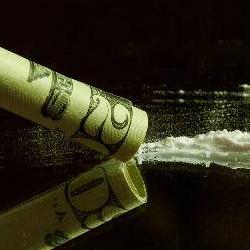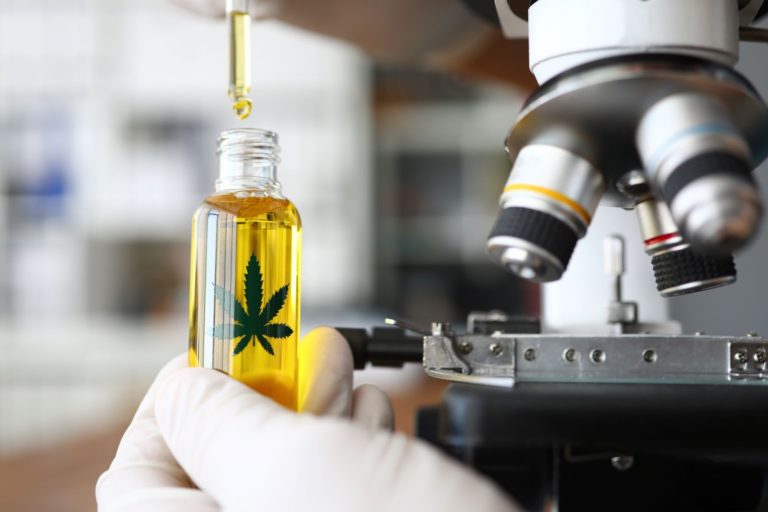 By Steve Elliott of Toke of the Town
By Steve Elliott of Toke of the Town
A marijuana component helps mitigate cocaine addiction in mice, according to a new study, lending further evidence to the notion that marijuana is an “exit” drug and could become the next big anti-addiction therapy.
The discovery by researchers in China and Maryland was announced in the July 2011 issue of Nature Neuroscience magazine, reports Stephen C. Webster at The Raw Story.
Cannabidiol (CBD), a medically useful component of marijuana that does not produce a “high,” effectively turns down a receptor in the brain that is stimulated by cocaine, the study found.
Scientists used a synthetic version of cannabidiol, called JWH-133, to see how mice given regular doses of cocaine might respond. The found the mice dramatically reduced their intravenous cocaine intake — by up to 60 percent — after being given JWH-133.
“It’s a very significant reduction,” said Zheng-Xiong Xi, the lead author of the study and a researcher at the National Institute on Drug Abuse (NIDA), reports Maia Szalavitz at Time.
“It’s extremely exciting,” said Antonello Bonci, scientific director for intramural research at NIDA.
After THC, CBD is the second most prevalent compound in marijuana. Researchers formerly believed that cannabidiol’s CB2 receptor wasn’t found in the brain and that therefore CBD had no psychoactive effects, but a growing body of evidence suggests otherwise.
 Their demonstrated success of reducing cocaine consumption could lead to new drug replacement therapies for cocaine and crack addicts, helping them detox and overcome withdrawal symptoms. Having quit cocaine in 2004 with the aid of cannabis, I can personally attest to the effectiveness of this method.
Their demonstrated success of reducing cocaine consumption could lead to new drug replacement therapies for cocaine and crack addicts, helping them detox and overcome withdrawal symptoms. Having quit cocaine in 2004 with the aid of cannabis, I can personally attest to the effectiveness of this method.
Ethnographic research by Ric Curtis, chair of anthropology at John Jay College in New York, backs me up on that point. National surveys found that as crack cocaine use declined in the early 1990s, marijuana use rose — and Curtis found that many recovering crack addicts reported substituting marijuana for crack, finding it cheaper and less disruptive.
Marijuana, as a recreational drug, produces less dependence and withdrawal effects than even coffee. Cocaine, on the other hand, is much more intoxicating and reinforcing, making users more likely to use the drug again, and with increasing frequency.
JWH-133 is chemically related to JWH-018, which has been the subject of controversy because of its use in Spice, K2, Black Mamba and other herbal “incense” smoking blends which are supposed to produce marijuana-like highs.
While JWH-133 does not produce such effects, JWH-018 and similar chemicals do, leading the Drug Enforcement Administration (DEA) to recently place them on their list of controlled substances.
The International Narcotics Control Board, a prohibitionist agency set up by the United Nations, claimed recently that outlawing JWH-018 was a “positive step” in drug control efforts. It urged UN members to go farther and put blanket bans in place on new substances “to prevent the rise of new designer drugs.”
Unfortunately, if this policy is adopted, it would also apply to JWH-133 and effectively shut down the most promising avenue of research in drug addiction treatment.
Article From Toke of the Town and republished with special permission.
























